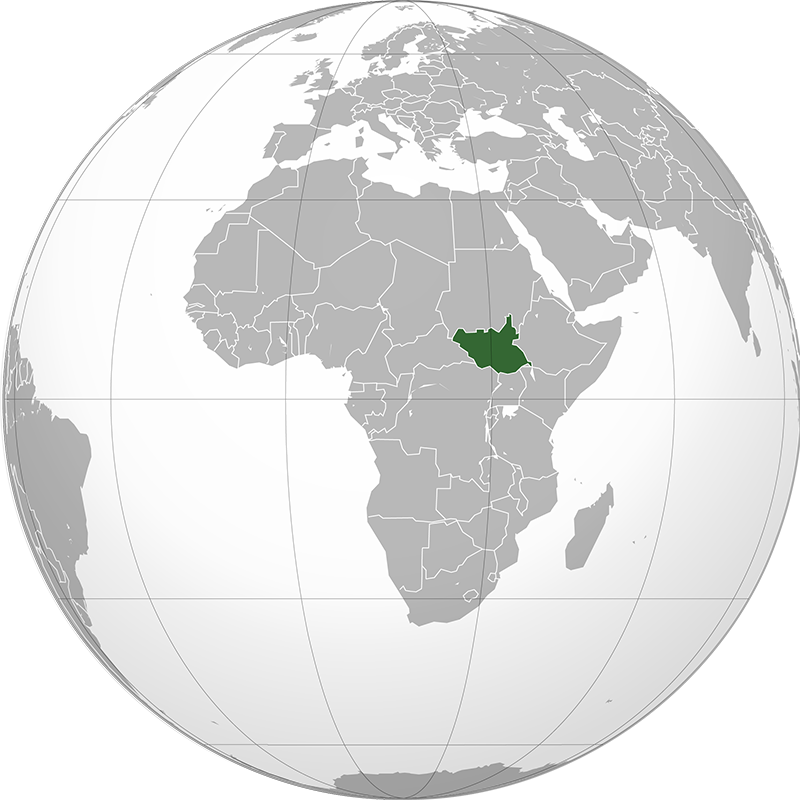
- Population:
- 11,943,000
- Religion:
- Christianity
South Sudan gained independence from Sudan in 2011 after decades of civil war. Since independence, the country has faced internal conflicts and economic challenges but continues efforts toward stability and development.
South Sudan, officially the Republic of South Sudan, is a landlocked country in East-Central Africa. It gained independence from Sudan in 2011, making it the newest sovereign state in the world. It shares borders with Sudan, Ethiopia, Kenya, Uganda, the Democratic Republic of the Congo, and the Central African Republic. Covering an area of approximately 619,745 square kilometers, it has a population of about 11 million people as of 2023. The capital and largest city is Juba. The official language is English, with numerous indigenous languages also spoken. South Sudan operates as a federal presidential republic. The economy is primarily based on oil production, along with agriculture and livestock. South Sudan is known for its diverse ethnic groups and cultures, as well as its rich biodiversity, including vast wetlands and national parks. The country has faced challenges such as internal conflict and underdevelopment but continues efforts toward peace and nation-building. South Sudan is a member of international organizations such as the United Nations, the African Union, and the Intergovernmental Authority on Development.





